
Home | Card Index | | | |
 Home | Card Index | | | | |
German Political Associations in the World of Eman Robitschek |
|
Eman Robitschek believed in pan-Germanic culture and the movement to create a German state at the heart of Europe, but he was appalled by the leadership of Austria, Germany and other European countries, and at the moral decay of German society and culture that followed WWI. Though he does not discuss German political associations directly, he makes frequent use their propoganda labels in his correspondence during and immediately following WWI. At first glance, this appears to be an act of patriotism and pan-Germanic solidarity, but in reality they are also used to mask his underlying criticism of the need for war, the state and the morality of its leaders. |
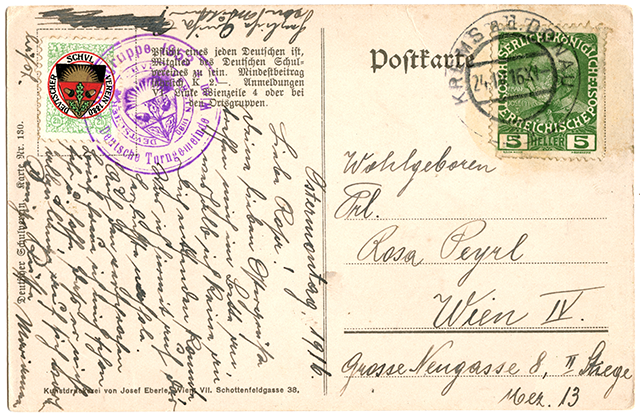
|
|
|
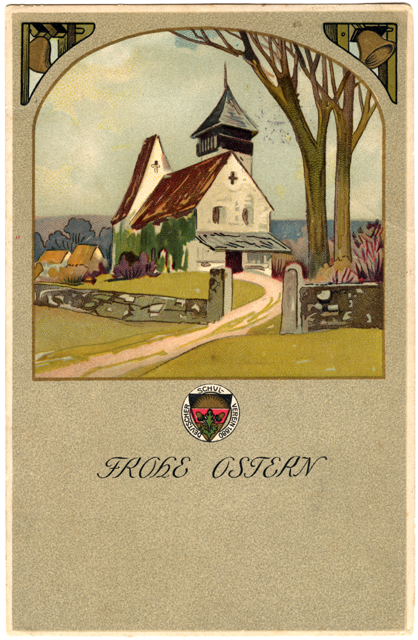
|
One of the oldest and most respected German political associations in Austria was the Deutscher Schul Verien (GSV), or German School Association, which was founded in 1880. The GSV built and staffed private schools in which instruction was in German and the curriculum had a strong Germanic bias. Naturally, their schools had libraries one purpose of which was to disseminate literature that promoted union with Germany. |
| Notice that the card is addressed to Wellborn Fräulein Rosa Peyrl. Cards such as this were commonly used by young men to court young ladies at a distance. What is written is mundane because it is, after all, public. But the card, itself, sends an important message. I am a man of substance who can afford enjoy the world, in this case from Krems on the Danube, a beautiful town some 70 km. from Vienna. I am a reliable German who will send our children to the finest German school in Vienna, but also one who treasures our rural Germanic roots. 'What a fine husbond I would make' is the subtext of the card. | |

|
 |
|
Eman's Use of Propoganda Labels Eman Robitschek does not comment directly on German patriotic associations, but during WWI he used their propoganda labels frequently to illustrate concepts in his poems and essays. He used the labels of the Deutscher Schul Verein most frequently. When it formed in 1880, the DSV welcomed all German speaking peoples. Many prominent Jews were members and raised substantial funds for the cause. However, as anti Jewish attitudes gained ground, dissatisfied DSV members left to found or join anti Jewish political associations. Eventually the DSV purged its Jewish members, but during WWI it still tolerated them. It is likely that his children went to German schools sponsored by the DSV and quite possible (though we have no certain knowledge) that Eman was a member or supporter of the DSV during the period he was using their labels.
|
|||||
|
|||||
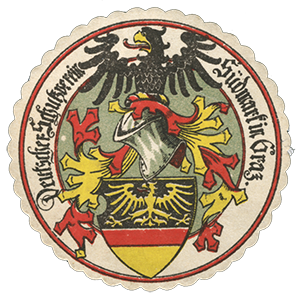 |
A) Deutscher Schulverein (DSV) (German School Association). The DSV created thousands of private German schools in communities throughout Austria and other countries with significant German-speaking minorities. This created a unified German population that shared the same cultural traditions and political aspirations, together with the societal assumption that there would one day be a unified German nation. Though center-leaning and liberal, the DSV fed young german men into other German associations that were more overtly political, more aggressive in seeking unification with Germany, and anti-Semitic. |
||||
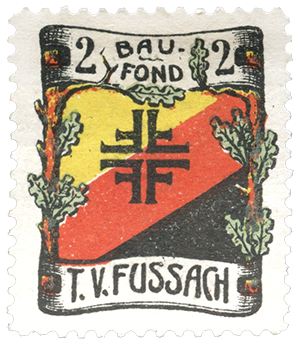 |
B) Turner League. The Turner movement was founded in Germany in 1807 and spread to Austria in 1845, making it the oldest of the Austrian Political Associations. The Turner League went through many transformations and fissioned many times, but the surviving core movement was always highly political in character. The association that emerged in 1911 was anti-Semitic and strongly desired German unity. After WWI, it was used by the Nazis as a front organization within German-speaking communities outside Germany. It may also have played an important role in the promotion of the Swastika by Hitler in 1920. Learn about the Turner movement in Austria. |
||||
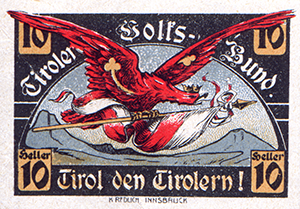 |
C) Tirol People's League. |
||||
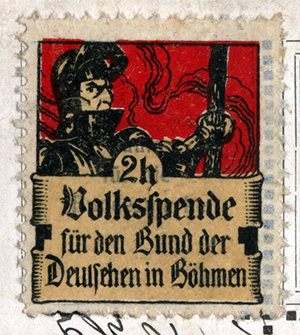 |
D) Bund der Deutschen in Bohmen. |
||||
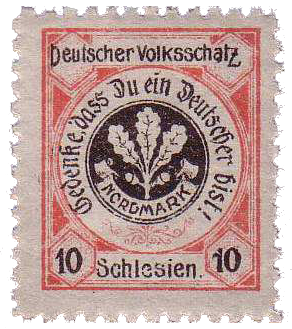 |
E) Nordmark. |
||||
 |
F) Nordmahrens. |
||||
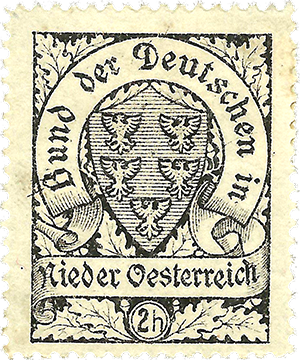 |
G) Niedersoterrich. |
||||
 |
H) Ostmark. |
||||
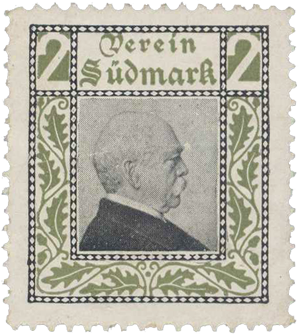 |
I) Sudmark. |
||||
 |
J) Sudmahren Wehrschatz. |
||||
 |
K) Deutschnational Verein fur Österrich. |
||||
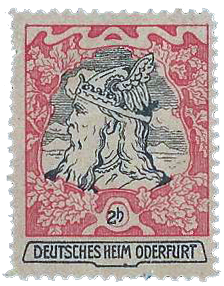 |
L) Deutsches_Heim. |
||||
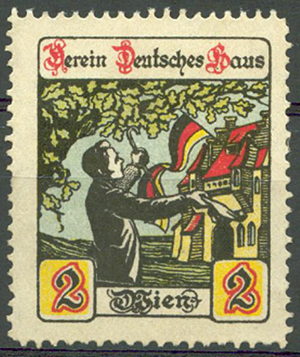 |
M) Deutsches Haus. |
||||

|

|
Last updated 01/15/2014 Stand by, there's much more to come before this page is complete. |

|
 |
|
©2013-2014 by Charles M. Nelson All rights reserved. |